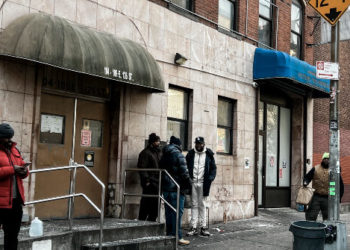Millions of people in California have been urged to avoid grilling on Wednesday amid concerns over high air pollution levels.
The South Coast Air Quality Management District (AQMD) issued an air quality alert due to harmful levels of ozone pollution, covering major urban areas including Los Angeles, Burbank and Pasadena.
An Ozone Action Day alert has also been issued in Colorado, covering the city of Denver.
Why It Matters
The Environmental Protection Agency (EPA) cautions that exposure to ozone may irritate the respiratory tract, cause airway inflammation, and aggravate existing conditions like asthma, emphysema, and chronic bronchitis.
Vulnerable populations — such as older adults, children, and individuals with lung diseases — are at greater risk.
What To Know
In California, the AQMD — the air pollution control agency for Orange County and the urban portions of Los Angeles, Riverside and San Bernardino counties — issued an ozone advisory spanning most of its jurisdiction.
It urged people in affected regions to avoid sources of pollution such as grilling, fireplaces, candles and incense.
“Keep windows and doors closed; run your air conditioner and/or an air purifier; do not use whole house fans or swamp coolers that bring in outside air if you have other methods to stay cool,” it said in a notice published by the NWS.
“Limit the use of gasoline powered lawn and garden equipment until evening hours; try to delay trips to the gas station and the use of household chemicals until the evening.”
Ozone concentrations are forecast to remain lower in coastal regions, it added.
In Colorado, an ozone action day alert is in effect for the Front Range Urban Corridor. Counties affected by the warning include Douglas, Jefferson, Denver, Arapahoe, Adams, Broomfield, Boulder, Larimer, and Weld.
“Hot and dry weather on Wednesday may allow ozone to reach levels that are unhealthy for sensitive groups in the northern portions of the Front Range region,” the Colorado Department of Public Health and Environment said in a notice published by the NWS.
“If possible, please help us reduce ozone pollution by limiting driving gas and diesel-powered vehicles until at least 4 p.m.”
The AQI measures air pollution on a scale from 0 to 301 and above.
- 0–50: Good. Air quality is satisfactory.
- 51–100: Moderate. Air quality is acceptable, with potential concerns for sensitive individuals.
- 101–150: Unhealthy for Sensitive Groups. Air quality may affect people with heart or lung disease, older adults, children and pregnant individuals.
- 151–200: Unhealthy. Everyone may begin to experience health effects, and sensitive groups may see more serious effects.
- 201–300: Very Unhealthy. The risk of health effects is increased for everyone.
- 301 and above: Hazardous. The air quality requires a health warning of emergency conditions, and everyone is more likely to be affected.
What People Are Saying
AccuWeather meteorologist Brandon Buckingham told Newsweek previously: “Ozone is a secondary pollutant, meaning it’s not emitted directly from sources, but is formed through chemical reactions. These reactions require sunlight and higher temperatures, making warmer months more prone to ozone formation. When air is stagnant, pollutants don’t get dispersed, allowing ozone to build up to unhealthy levels.”
The AQMD wrote in a post on X, formerly Twitter, on Monday: “OZONE ADVISORY (Monday, July 7 – Thursday, July 10): elevated smog levels expected as high temperatures are predicted to persist through the week.”
What Happens Next
The alert in California is set to remain in force until 8 p.m. local time on Thursday. The warning in Colorado is in force until 4 p.m. on Wednesday.
Regular updates are issued by the NWS on its website.
The post Millions Told Not To Grill, Barbecue appeared first on Newsweek.




